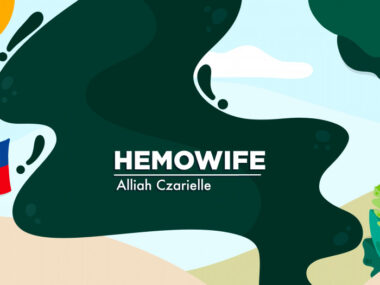My husband has hemophilia, but he’s not like ‘another child’
For us, open communication is crucial to maintaining a healthy relationship
Written by |

Sometimes I hear other women joke about their husbands being their “extra child,” and I can’t help but nod in understanding. Living with Jared, who has severe hemophilia B and a seizure disorder, means I occasionally slip into caregiver mode with him, too. But here’s what might surprise you: I actually talk to him about this directly, and it works for us.
In our home, open communication isn’t just nice to have — it’s essential. When I feel the scale tipping too far into caregiver territory, I say it out loud: “I’m feeling more like your nurse than your wife today.” And instead of causing hurt feelings, these check-ins have become vital to maintaining our relationship.
What many couples miss is that speaking these uncomfortable truths — with kindness and without accusation — creates the space to actually address them. Without this openness, resentment grows in silence.
For us, these conversations have revealed something important about me: I’m fiercely independent, yet I also value being taken care of in certain ways. That seems contradictory until you realize that healthy relationships aren’t about rigid roles, but about understanding each other’s changing needs.
Our ‘hot take’ on marriage with a child
Here’s something that might ruffle some feathers: Jared and I prioritize each other while making major decisions regarding our daughter’s future and well-being. In a world that often expects parents to completely sacrifice themselves on the altar of parenthood, we’ve chosen differently.
We believe the greatest gift we can give our daughter isn’t endless self-sacrifice but a front-row seat to what a balanced, loving partnership looks like. When she sees how we communicate, compromise, and care for each other despite the challenges of chronic conditions, she’s learning lessons no parenting book could teach.
That cliché about “children being the future” actually holds profound truth. In the natural order of things, our daughter will outlive us, carrying forward what we’ve shown her about navigating life and relationships. Our marriage isn’t separate from our parenting — it’s central to it.
Breaking the caregiver mold
One thing that makes our situation work is that I’m not a traditional “nurturer” by nature. Thankfully, Jared doesn’t expect me to be. He doesn’t look at me as his default caregiver just because I’m his wife.
Instead, he works relentlessly to maintain his independence, tackling life on his own terms regardless of what others might think or say. When he needs a new treatment plan or faces a difficult health decision, he takes the lead rather than waiting for me to manage everything.
This determination makes all the difference. He’s mindful about not letting me bite off more than I can chew, stepping in to handle household responsibilities even when he’s not feeling his best. And on the days when his health forces him to step back, he’s quick to acknowledge the extra weight I’m carrying.
Living with hemophilia in the picture means our balance is always shifting. Some weeks are easy, and we’re just two partners navigating life with our daughter. Other weeks bring bleeds or seizures, and suddenly I’m juggling more than usual.
But through it all, we keep talking. We keep adjusting. And we keep remembering that taking care of ourselves and our relationship isn’t selfish — it’s the foundation everything else is built upon.
So when I hear women lamenting that their husband is like another child, I don’t just nod in sympathy. I want to ask: “Have you told him how you feel? Not as an accusation, but as the start of an honest conversation?”
Because, in my experience, the challenges we name lose some of their power over us. And the partners who are willing to hear these truths — without defensiveness — are the ones worth navigating life’s complexities with.
Note: Hemophilia News Today is strictly a news and information website about the disease. It does not provide medical advice, diagnosis, or treatment. This content is not intended to be a substitute for professional medical advice, diagnosis, or treatment. Always seek the advice of your physician or another qualified health provider with any questions you may have regarding a medical condition. Never disregard professional medical advice or delay in seeking it because of something you have read on this website. The opinions expressed in this column are not those of Hemophilia News Today or its parent company, Bionews, and are intended to spark discussion about issues pertaining to hemophilia.



Leave a comment
Fill in the required fields to post. Your email address will not be published.